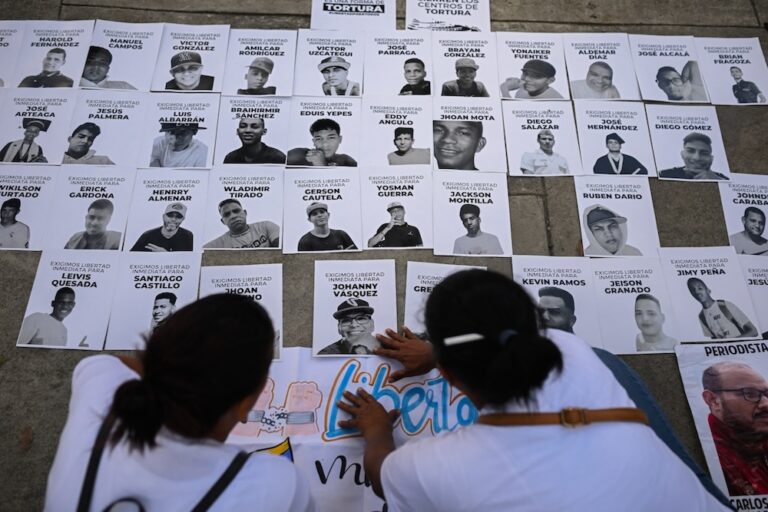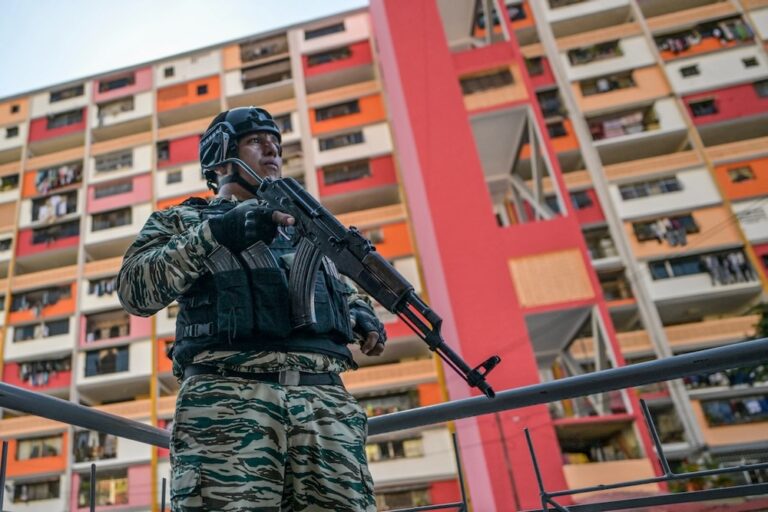(IPYS/IFEX) – Since early February 2003, the Venezuelan media have been unable to obtain the foreign currency they require in order to buy materials they need for production. On 21 January, the foreign exchange market was closed and exchange controls were decreed. The measure has caused uncertainty and concern among the media, since President Hugo […]
(IPYS/IFEX) – Since early February 2003, the Venezuelan media have been unable to obtain the foreign currency they require in order to buy materials they need for production. On 21 January, the foreign exchange market was closed and exchange controls were decreed.
The measure has caused uncertainty and concern among the media, since President Hugo Chávez has said there will be “no dollars for coup d’état collaborators.” In several speeches, Chávez has accused the private Venezuelan media of being such collaborators, on account of the role they have played in the current political crisis, especially the abortive April 2002 coup d’état and the civic strike of December 2002 and January 2003, which was organised to demand Chavez’s resignation.
In a 26 February press conference in Washington, Information and Communications Minister Nora Uribe promised that “the government will not deny the media access to foreign currency.” Uribe was in the United States to make a presentation on the behaviour of the Venezuelan media to the Inter-American Commission on Human Rights (IACHR), a branch of the Organization of American States (OAS).
On 5 March, economist Domingo Maza Zavala, a member of the Central Bank of Venezuela’s board of directors, rejected the government’s refusal to deliver foreign currency to the media.
“I call it irrational. I believe the newspapers have the right to receive materials indispensable to their operation, because it is a basic necessity for today’s Venezuelan to read the daily press,” said Maza.
“It seems to me that paper for newspapers is fundamental, because the media must be kept active, as it is a strategic national element. It is a fundamental necessity that the people be well informed,” he added.
Venezuelan newspapers have been unable to buy newsprint since November 2002, prior to the civic strike that affected the country for more than two months. Since that time they have continued to print thanks to reserves that are about to be exhausted.
Media owners and workers hope that the government will take steps to guarantee the communications sector access to foreign exchange.
The foreign exchange market has been closed since 21 January. On 5 February, the Finance Ministry, representing the executive, and the Central Bank of Venezuela signed an agreement establishing currency exchange controls in Venezuela. On the same day, President Chávez decreed the creation of the Foreign Exchange Administration Commission (Comision de Administracion de Divisas, CADIVI), with responsibility for administering the country’s foreign exchange market.
To date, no concrete measures have been taken to guarantee or regulate the provision of foreign currency for the media.
Recommended Action
Send appeals to the minister of information and communications:
– asking that action be taken to guarantee the media access to foreign exchange and to avoid the imposition of restrictions as a means of political retaliation
Send appeals to the president of the Foreign Exchange Administration Commission:
– asking that measures be taken to equitably regulate the Venezuelan media’s access to foreign exchange
Appeals To
Nora Uribe
Information and Communications
Tel: +58 212 806 33 63/ 806 32 58/ 806 36 37
Fax: +58 212 806 36 72
Edgar Hernández Behrens
President of the Foreign Exchange Administration Commission (CADIVI)
E-mail: info@cadivi.gov.ve
Internet page: www.cadivi.gov.ve
Please copy appeals to the source if possible.


